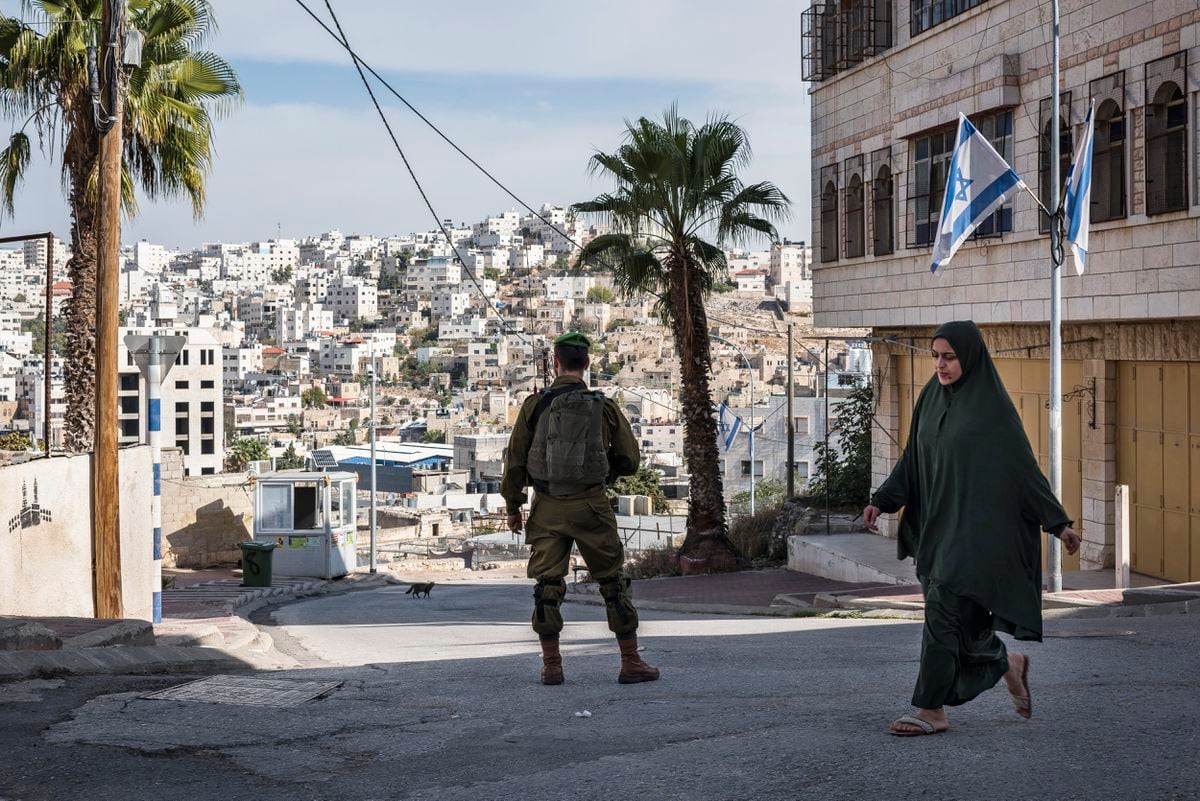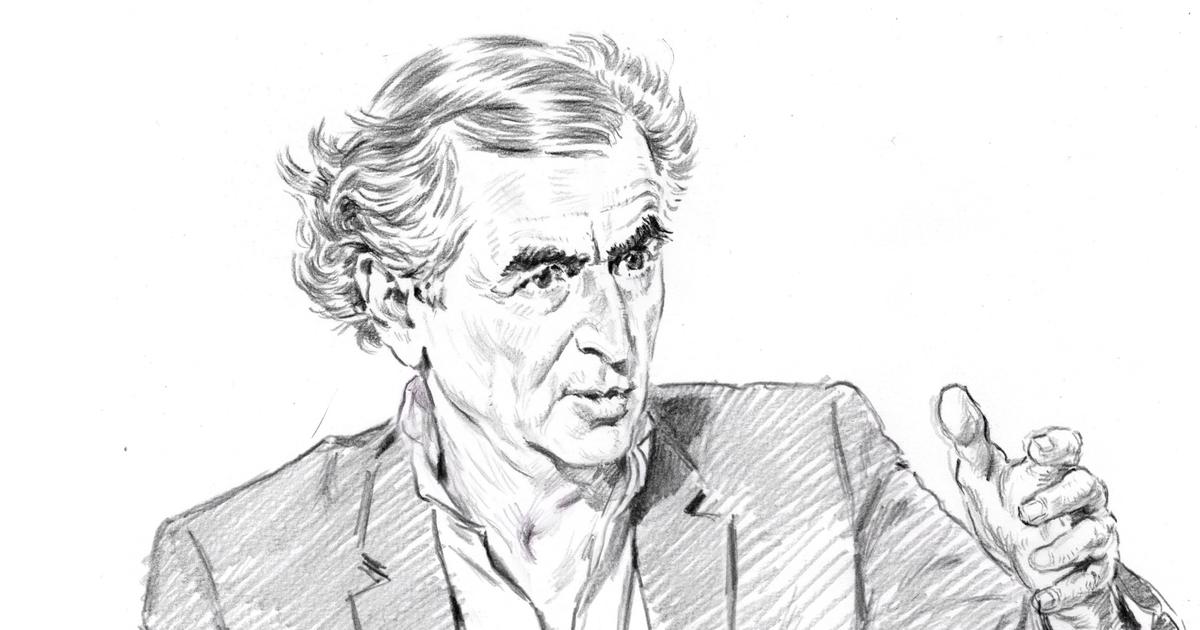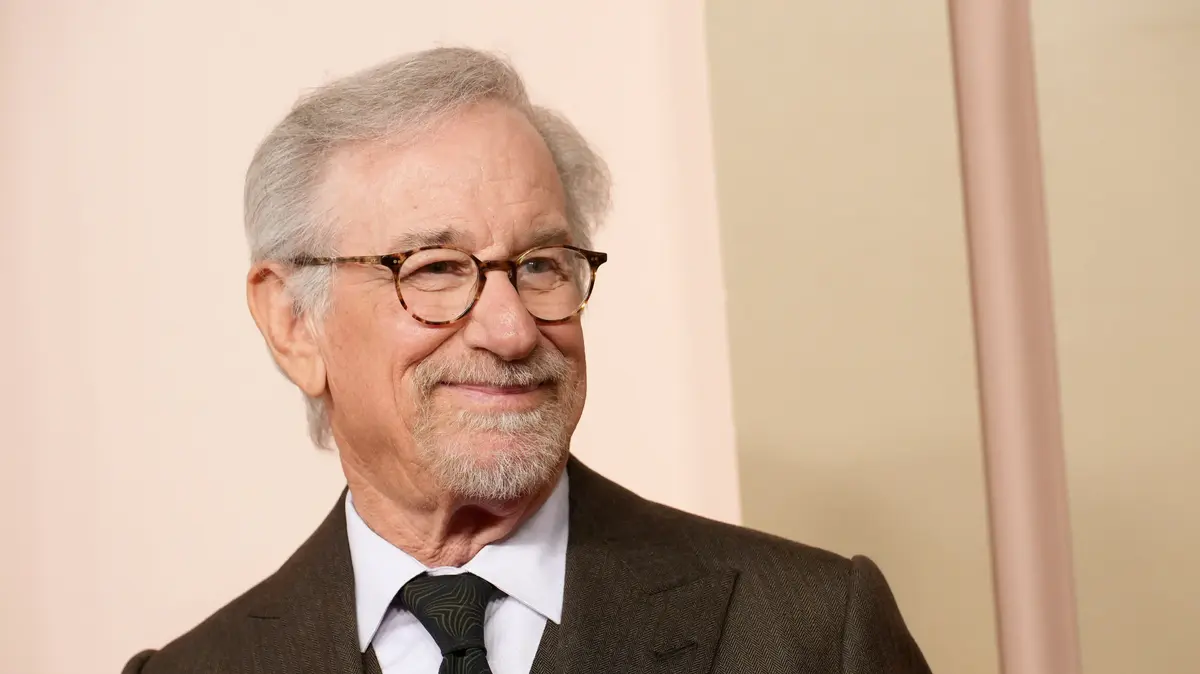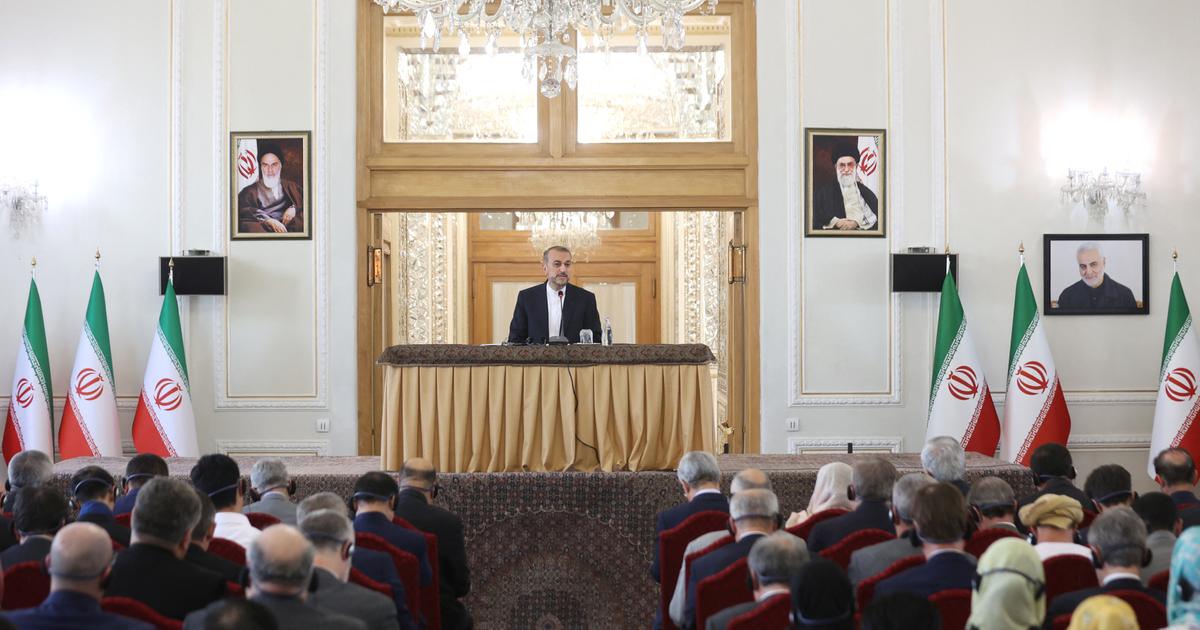The answer to the complicated question of what a Jewish state is seems simple: the entity in which Israeli citizens — both Jews and Arabs — live today is a Jewish state. It hosts a decisive Jewish majority that, for the most part, considers the state to be the national home of the Jewish people; In general, it is governed by the Jewish calendar (the national day of rest is Saturday, the Sabbath, and Jewish holidays and commemorative dates are national holidays); and the dominant language is Hebrew, the language of the Bible, in which the identity of the Jewish people is wrapped.
More information
God or democracy: the moment of truth in Israel
In the 75 years of the state's independence, numerous layers of Jewish-Israeli life have accumulated, which, in fact, began to form years before its creation. One of them, of course, is the complex relationship between the Jewish majority and the Arab minority. Every moment of Israeli history contains the DNA of the convoluted, dynamic and turbulent manifestation of the Jewish state that is known as the State of Israel.
But, wait a minute, aren't we forgetting something?
There is one element that is a substantial part of shaping Israel's identity: the almost total indifference of the majority of Israelis to the occupation of the Palestinian people and their lands for more than 55 years. It must be made clear that Israel is not solely responsible for the failure of any real attempts to resolve the conflict in recent decades. There have been serious mistakes by both Palestinians and Israelis that have led us to what now looks like a dead end. But now, as we celebrate Israel's 75th anniversary, an occasion that invites both wonder and reflection, we must examine whether the term "Jewish state" is perhaps a way of forgetting the occupation. And we must also ask ourselves whether such barbarity, forgetting the occupation and erasing it from Israeli consciousness, is something we can overlook.
"The situation." That's — many readers already know — how we Israelis refer to our relationship with the Palestinians. It is the name we give to a bloodshed that began several decades ago, wars and "operations" that never quite satisfy their thirst, occupation, resistance, settlement building, raiding — in every sense of the word — and terrorism.
Most people who were born when "the situation" already existed and have lived all their lives in it have long since lost any hope that it can one day be resolved. They are paralyzed by the complexity of all their facets: the endless circles, the inevitability of violence on one side and violence on the other, the empty slogans that serve to tell endless versions of what happens, the way to turn real human stories into manipulative stories, the insult to those who see their vital essence reduced to a cliché.
Those of us who were born into "the situation" have accepted that our children and our children's children are condemned to live in the midst of violence and, in many cases, to die from it. We already know that strength does not guarantee victory. That a sword is a double-edged sword. We know this, but we look the other way. We close ourselves more and more in on ourselves and allow ourselves to be overcome by apathy and fatalism, we surrender to the consolation of religion and the exaggerations of nationalism. We look for comfortable and accessible escapes, stars that shine before our glassy eyes, anything that distracts us from the terrifying and disturbing questions that conflict raises.
Those who observe us see us as increasingly passive, emotionally "neutralized" (another frightening word in the vocabulary of conflict). But the gulf between us and the reality of the conflict is not empty: it is constantly filled by a torrent of extremist, nationalist and fundamentalist forces. Forces that do everything possible — stopping at nothing — to impose their objectives on the frightened and paralyzed majority.
It is dangerous to speak of "the characteristics" of a State or a nation, but actions and procedures can be pointed out. A clear example is the so-called "settlement campaign", a process that has created a reality and transformed Israel. The purpose of this campaign — geographical, political, military and, above all, psychological — from the outset was to derail the prospects for establishing fair borders accepted by both parties and, as a result, has prevented and continues to prevent the conclusion of a stable peace agreement that would be fundamental to Israel's destiny. In the same way, the Jewish religion has become so intertwined with Israeli politics, for decades, but especially since the Six-Day War, that it is no longer possible to untangle them.
A group of ultra-Orthodox Jews harvest wheat near the Israeli settlement of Modiin in the West Bank on May 17 MENAHEM KAHANA (AFP/GETTY IMAGES)
Israel celebrates 75 years of independence, but it still has no permanent and accepted borders. From the earliest moments, the boundaries of the State have been contracted or extended according to wars and operations, withdrawals and occupations and agreements of various kinds. A State that lacks accepted borders lives in constant and dangerous tension: between the temptation to invade its neighbours and the fear that they will invade. This constant tension, this existential uncertainty, makes Israel look more like a fortress than a home and determines the current nature of the Jewish state.
The Judaism to which I feel linked is secular and humanistic. He believes in human beings. The only thing he considers sacred is human life. Those who believe in him achieve things through dialogue, never through coercion.
Inside my mind there is a frequency in which I perceive my belonging to the Jewish people, but also my occasional aversion to that belonging. I feel an enormous affinity with the fate of the Jewish people and with their glorious and terrible history. With the Hebrew language in its various evolutions. With the rich culture he created. With his ironic and awkward sense of humor.
The Judaism with which I have a bond is disgusted by the euphoria and arrogance I see in certain circles of Judaism today and the shackled fusions that increasingly squeeze me: the fusion of religion with messianism, of faith with fanaticism, of the national with the nationalist and the fascist.
"The situation," which continues to multiply, raises questions about Israel's right to define itself as a democracy. An occupation regime cannot be democratic; It's impossible. After all, democracy stems from the deep conviction that all human beings are equal and it is wrong to deny a person the right to determine his or her own destiny.
Years of occupation and humiliation can create the mirage that human value is subject to a hierarchy. The occupied nation ends up being considered inferior, with an innate and existential inferiority. The occupier thinks that his miseries and misfortune constitute a destiny theoretically derived from his own essence (the same treatment, as we know, that anti-Semites have always given to the Jews). Its members are people whose human rights can be denied and whose values and desires can be denigrated. Of course, the occupying nation considers itself superior and therefore with an innate right to control. In this reality, as religion carries more weight, the idea that this is God's will takes root. And it is easy to understand that, in this climate, the democratic conception of the world is fading.
And I ask: How is it possible that those who believe that God created man in his image and likeness trample on that image?
Today, it seems that, for most Israelis, the occupation and its repercussions provoke not the slightest anguish, let alone a sense of guilt for living a life of lies and repression. Almost everyone has learned, through a series of very refined instincts, to "live with it" (I am tempted to say "ignore it"). Nor is it that thinking about the occupation has pushed Israeli citizens or most of their rulers since 1967 to take steps to finally begin to remedy the perverse situation. We have become accustomed to it. And the State of Israel constructs its own image and its own narrative so effectively and so secretly that it has erected an impenetrable barrier between its consciousness and reality.
When Jews were scattered in 70 Diaspora groups, they dreamed touchingly of the wonderful, dreamlike Eretz Yisrael, the land of Israel, and incorporated that longing into daily lives that were often filled with deprivation and persecution. Benjamin III and his friend Sendrel, the fictional characters created by Mendele Mocher Sforim in The Travels of Benjamin III, live with their feet trapped in the diaspora as they dream of Eretz Yisrael, to which they are sure they are entitled. Very soon you will reach it, fill your stomach with dates and figs and see King Solomon using the legendary shamir to cut the stones of the First Temple. "It's all there," Benjamin says longingly, "there are all the places."
This exceptional gift (the one staged in Fiddler on the Roof) of believing without qualms in the power of imagination and being able to negotiate with imagination to make it come true is manifesting itself again today, but this time the violinist is in a tank and the gift is used to erase from our mind the existence of another nation. the humiliation and suffering we inflict on him on a daily basis and the injustices created. On this occasion, the gift helps us to create amazingly elaborate networks to circumvent reality, which make it possible for the nightmare situation to endure, apparently without paying any price.
In other words, imagination, that metaphysical organ that contributed so decisively to the tremendous feat of returning to Zion, now allows Israelis who wish to do so — who, apparently, are legion — to create a picture of reality in which an entire nation is missing: millions of people who have their homeland here.
Therefore, one of the many possible answers to the question "what is a Jewish state?" is: "A Jewish state is a state with the ability to live a full and intense life while deceiving and repressing itself while incurring total denial of reality."
Imagination fanns its own flame and becomes hallucination.
The hallucination materializes.
Some know how to mold it to further their own ends.
Reality becomes delusional.
More and more people are getting caught up in it.
And others fall trapped in spite of themselves.
An officer hoists the flag of Israel for the first time since its proclamation as a state on May 14, 1948. INTERCONTINENTALE (AFP/Getty Images)
However, as we commemorate our independence, I would like to propose adding to the definition of a Jewish state one more facet that, if implemented, could strengthen Israel's Jewish identity and values and improve its relationship with the large Palestinian minority. "If it were applied", because today it does not apply, or only in very limited circumstances. But it is possible that one day, when the great conflict between Israel and the Palestinian people is resolved, the Jewish and Arab citizens of the State may also feel ready to achieve true reconciliation.
Part of the great and incredible revolution of the Jewish nation's return to its homeland is that it must now learn to be a majority. It must heal the wounds of having been a persecuted minority and understand the obligations that a majority has towards the minorities with which it lives. It is not an apprenticeship. It implies renouncing concrete and abstract goods: identity and self-perception (renouncing stereotypes and prejudices is very difficult). For example, it calls for a drastic change in curricula and a policy to protect minorities from the evils of racism and hate crimes.
These measures have the capacity to create a reality in which all people, both majority and diverse minorities, can flourish, feel protected, feel represented in all systems of life and government, have the same rights and obligations, live with dignity and equity, both economic and cultural. Then they can feel valued and able to contribute to the backstory of their own community without erasing those of others. They will be able to heal the wounds of the past present in their roots.
If these steps are taken, then we can inscribe at the entrance of the Supreme Court and proudly quote this verse: "You shall have one law; as the stranger, so shall the natural be" (Leviticus 24:22). And secularists and atheists, before the door of the Knesset (Parliament), will read with emphasis, as in a secular prayer, the verse inscribed there: "And God created man in his own image, in the image of God he created him; male and female he created them" (Genesis 1:27).
But why limit itself to repairing the relationship of the State with its great national minority? Why not go further and extend that aspiration to all minorities, all disadvantaged groups, of every nation, race and sex? Asylum seekers are also a beleaguered minority. The elderly on the brink of famine also suffer. Just like the disabled, those living below the poverty line, Holocaust survivors. And more and more groups.
They may say: what you are proposing is a welfare state; What's "Jewish" about it?
He is Jewish because most of these desires, this concept of society and this way of seeing life are already expressed in Hebrew, in the Bible. And now, as I have already said, they will become a reality in a state in which Jews are in the majority. The term majority, in this case, is not a mere mathematical fact: for thousands of years, Jews lived as a foreign minority, subject to hatred and suspicion, in countries that almost always mistreated them, persecuted and degraded them and even tried to annihilate them. Even in "friendly" countries, the Jewish minority lived with a permanent sense of instability and transience and barely tolerated by the majority. The earth trembled incessantly under his feet and around him there were always imaginary "impassable lines".
Today, that minority is the majority, a condition that entails great responsibility and requires sensitivity, empathy and an ability to overcome history that I am not sure we possess. And yet, if Israel put into practice only some of the aspirations outlined here, we could say wholeheartedly: "A Jewish state is the national home of the Jewish people and considers the full equality of all its citizens to be the great human test to which it is subjected and the materialization of the ideas of its prophets and founders."
David Grossman (Jerusalem, 1954) is a writer and essayist. In 2006 one of his three sons was killed in the Lebanon-Israeli war by a Hezbollah missile. It defends understanding between the Israeli and Palestinian peoples. His latest book is Life Play with Me (Lumen)
Translation from English by María Luisa Rodríguez Tapia.
Sign up for the weekly Ideas newsletter here.
Subscribe to continue reading
Read without limits
Read more
I'm already a subscriber









